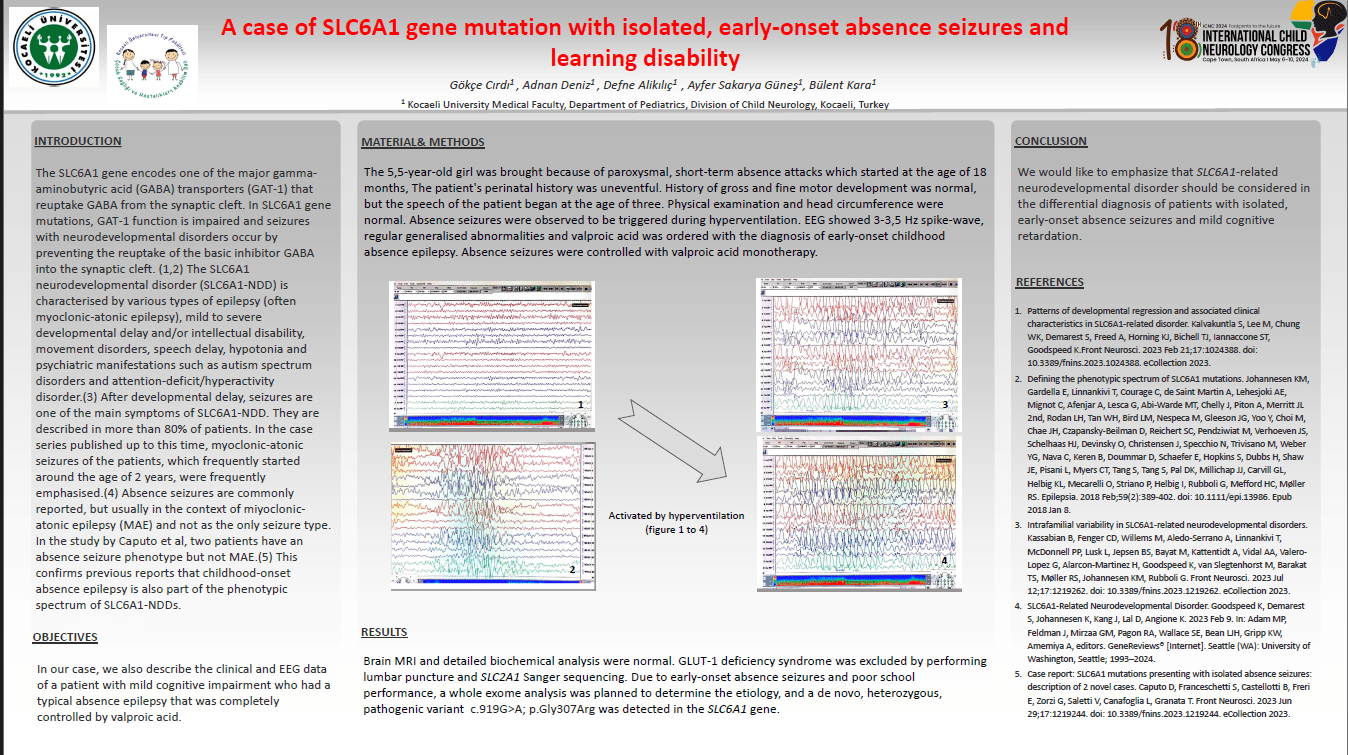A Case Of SLC6A1 Gene Mutation With Isolated, Early-onset Absence Seizures And Learning Disability
Introduction - Aims / Objectives of the study: SLC6A1-related neurodevelopmental disorder is characterized by developmental delay, different types of epilepsy, autism spectrum and attention-deficit/hyperactivity disorders. The SLC6A1 gene encodes a GABA transporter, which removes GABA from the synaptic cleft. We aim to present a rare SLC6A1-related phenotype by presenting a case with early-onset, isolated absence seizures and learning disability due to SLC6A1 mutation. Methods: The 5,5-year-old girl was brought because of paroxysmal, short-term absence attacks which started at the age of 18 months, The patient's perinatal history was uneventful. History of gross and fine motor development was normal, but the speech of the patient began at the age of three. Physical examination was normal. Absence seizures were observed to be triggered during hyperventilation. EEG showed 3-3,5 Hz spike-wave, regular generalised abnormalities and valproic acid was ordered with the diagnosis of early-onset childhood absence epilepsy. Absence seizures were controlled with valproic acid monotherapy. Results: Brain MRI and detailed biochemical analysis were normal. GLUT-1 deficiency syndrome was excluded by performing lumbar puncture and SLC2A1 Sanger sequencing. Due to early-onset absence seizures and poor school performance, a whole exome analysis was planned to determine the etiology, and a de novo, heterozygous, pathogenic variant was detected in the SLC6A1 gene. Conclusion: We would like to emphasize that SLC6A1-related neurodevelopmental disorder should be considered in the differential diagnosis of patients with isolated, early-onset absence seizures and mild cognitive retardation.
Gökçe Cırdı
Turkey
Adnan Deniz
Turkey
Defne Alikılıç
Turkey
Ayfer Güneş
Turkey
Bülent Kara
Turkey

Gökçe Cırdı
Turkey